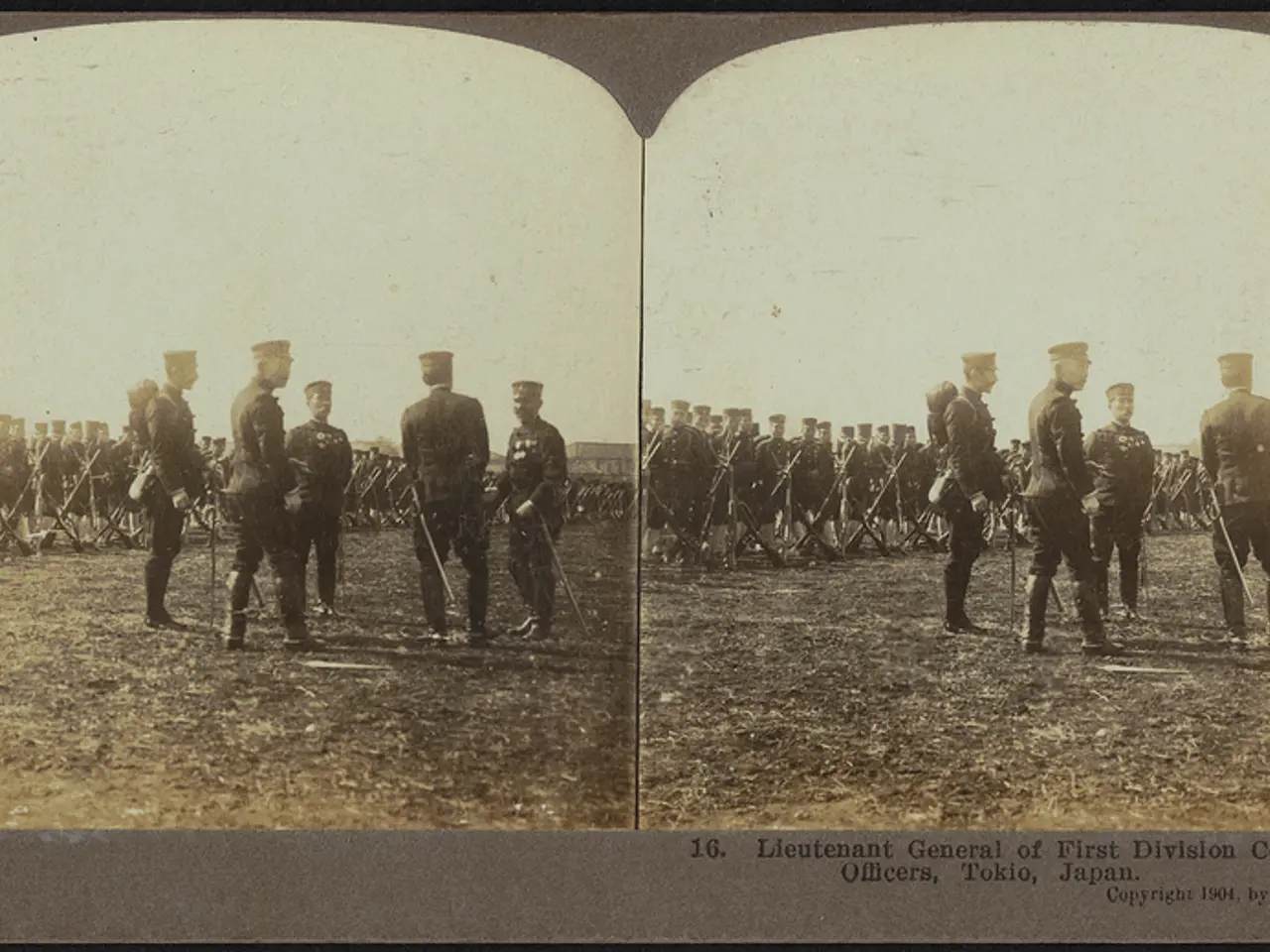The location of the KMT's dwelling or headquarters is under question.
Article: The Enduring Influence of the KMT in Taiwan's Political Landscape
The Chinese Nationalist Party (KMT), a political force that has been shaping Taiwan's political landscape for nearly eight decades, continues to maintain a China-friendly stance, advocating for improved cross-strait relations. This position, rooted in their historical origin and ideological position supporting eventual Chinese unification, has sparked significant political tension and mixed reactions among Taiwan's people.
During the White Terror era, Taiwanese people resisted the KMT regime's human rights violations. Yet, the KMT brought hundreds of thousands of soldiers and civilians to Taiwan, providing a sanctuary for its recovery and a place for its members to grow and build families in freedom. This historical context is a complex part of Taiwan's identity, as the KMT continues to influence Taiwanese politics.
The KMT's pro-China position has been a source of controversy in recent years. Critics accuse the party of compromising Taiwan's democracy by prioritizing closer ties with China. This has led to recall attempts and concerns over the defense budget and Taiwan's ability to deter Chinese military pressures. However, in a recent recall election, all targeted KMT lawmakers survived, indicating a resilient support base.
The KMT argues that engagement with China remains essential due to Beijing’s refusal to engage with the ruling Democratic Progressive Party (DPP). The KMT positions itself as pragmatists seeking dialogue to avoid chaos. However, this stance has hurt the KMT electorally, especially after high-profile events such as the 2019 Hong Kong protests, which boosted pro-independence sentiments and the DPP’s popularity.
The KMT's emphasis on cross-strait economic and political ties places them at odds with strong currents of Taiwanese identity that lean toward maintaining de facto independence and democratic values separate from China. The sentiment expressed in the Taiwanese saying, "We are more indebted to the parents who care for us than the parents who birthed us," signifies a measure of morality and loyalty that values actions over ancestry.
Hsu Pai-yueh, a former air force fighter pilot and commercial airline pilot, is a prominent figure in the KMT. The party continues to make revanchist claims, such as asserting that "mainland China is integral to the Republic of China." However, Taiwan values people based on their commitment to building a better future, rather than their origins.
During Taiwan's earthquake rescue efforts last year, the KMT sent delegates to China for "dialogue exchanges." If the KMT continues to prioritize China over Taiwan, Taiwan may choose to disassociate from the KMT. The KMT accuses Taiwan's armed forces of provoking China when Chinese military assets enter the Taiwan Strait. Yet, Taiwan does not require visitors seeking a "motherland," but seeks a community of allies who will support it.
The KMT fled to Taiwan after losing the Chinese Civil War in 1949. Despite their historical origin, the KMT continues to remain in the Taiwanese Legislative Yuan and influence Taiwanese politics. The KMT considers Taiwanese as descendants of the Yan Emperor (炎帝) and Yellow Emperor (黃帝), a claim that is met with mixed reactions among the Taiwanese people.
In summary, the KMT today is defined by its China-friendly, engagement-oriented stance, maintaining a vision that Taiwan’s future is linked to eventual reunification, albeit with a stable and negotiated approach. This has caused political friction but also a resilient support base, reflecting Taiwan’s ongoing debate over identity, democracy, and cross-strait relations after eight decades of KMT influence.
[1] Source [2] Source [3] Source
- War-and-conflicts and policy-and-legislation have been significant factors in the historical migration of the Chinese Nationalist Party (KMT) from mainland China to Taiwan, shaping the KMT's ongoing influence in Taiwan's politics.
- The KMT's stance on war-and-conflicts and politics, which advocates for improved cross-strait relations, has led to controversy and mixed reactions, especially as it pertains to the maintenance of de facto independence and democratic values in Taiwan.
- Meanwhile, general-news stories and crime-and-justice issues often highlight cases where the KMT's prioritization of China over Taiwan, such as its recent dialogue exchanges during Taiwan's earthquake rescue efforts, have raised concerns about possible compromises in Taiwan's national interests.








